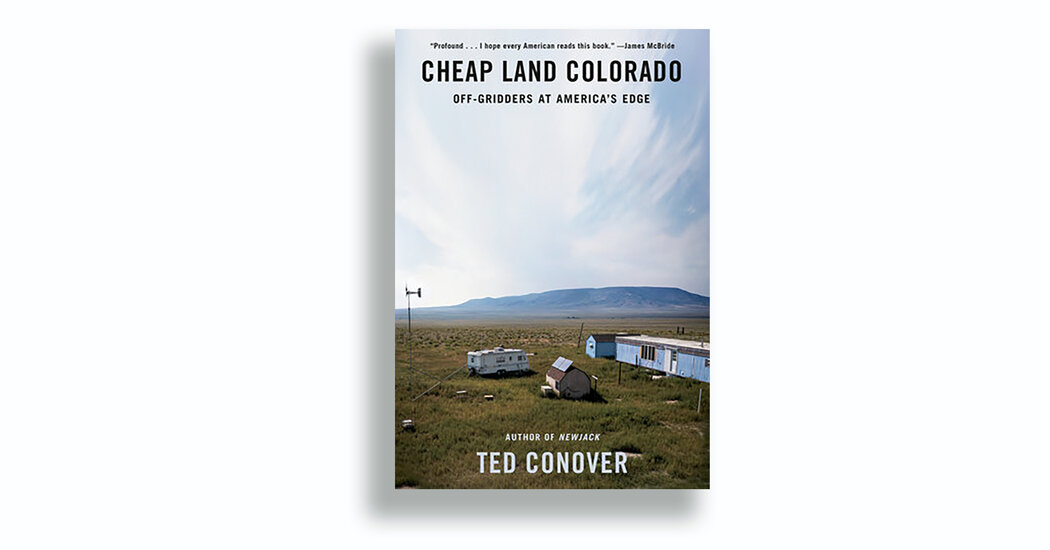
So prairie dwellers take on odd jobs and barter; some grow weed, which is legal. Most of them are white, though Conover interviews a Black woman who moved to the flats in 2014, staying there for only a few “tumultuous” months. He also includes a chapter about the region’s past, which included Indigenous tribes and Spanish colonialism, before the Mexican-American War made the area United States territory.
Longtime Hispanic residents living in old settlements sometimes call the white off-gridders roñoso, or squalid. As for the off-gridders themselves, “their political consciousness tended toward the Trumpian,” Conover writes. He spends enough time with them to learn how kind they can be, and how cruel, too. He meets a pastor who turns out to have been convicted of sexually assaulting a child. In the spring of 2020 Conover hears dismissive talk from his neighbors about “the baloneyvirus.” Even his kindly mentor at La Puente declares that the pandemic was “intentional” — a nefarious plot by shadowy elites to “start a race war.”
Conover tries to get people to say what they mean — asking them to specify a source when they start reciting conspiracy theories, even when that source is nothing more than “the internet.” At one point he has to pull up a government document on his cellphone to show a Covid-denying neighbor numerical evidence of how many had died. But Conover’s approach isn’t so much about pinning people down as letting them reveal themselves. He’s such a wry and nimble writer that much of the time this works, yielding rounded portraits that are full of ambiguity, anguish and contradiction.
Sometimes, though, Conover is so empathetic that he seems determined to put the most generous gloss on what people tell him. I puzzled over an exchange he had after the murder of George Floyd, when a white man named Luke complained that Black Lives Matter was unfair, because “don’t all lives matter?”
“I was reflexively about to tell him that of course all lives mattered,” writes Conover, “when Luke added some nuance: Black people, in his view, ‘aren’t just looking for equality, they’re looking for superiority.’ And then I saw that Luke, who had nothing, was saying that he was against being disadvantaged compared to Black people. He lived in a universe of poor people where he was competing for a small share of available resources. Equality, he said, would be fine with him.”
In what way was Luke “being disadvantaged compared to Black people?” There are any number of nouns to characterize what Luke is saying — but “nuance” isn’t it.
CHEAP LAND COLORADO: Off-Gridders at America’s Edge | By Ted Conover | Illustrated | 283 pp. | Alfred A. Knopf | $30



